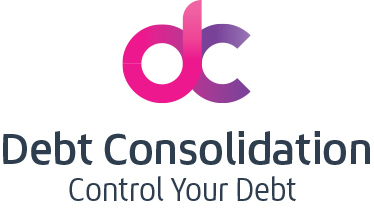Debt consolidation is a debt strategy to manage financial strain. But, is it good or bad? It could be a loan from banks, balance transfer from credit cards, home equity loans and so forth.
Debt Consolidation Pros
Lower interest rates
One of the main debt consolidation pros is that you are likely to be able to reduce interest rate payments. Find out the average interest rate of all your credit cards, finance and personal loans. This will then enable you to look for a debt consolidation loan plan that would help you get the most savings on interest payable. When you compare consolidation loan rates, you may be able to achieve around 50% of your interest rates across the board. For individuals who qualify for balance transfer cards with 0% interests would be prudent to take advantage of this, provided that they repay the balance within the introductory interest-free period.
Let’s say you have $500 balance at 15% APR with Credit Card A, $400 balance with Credit card B at 20% APR and $600 debt at with Credit card C. By transferring your balance to Credit Card D which has 0% APR, you only have to pay the total balance which is $1500 without having to pay the interest rate.
Simplify loan and credit repayments
Another of the significant Debt Consolidation Pros is that because you only have one payment to make it is easier to track and you have less due dates and creditors to juggle.
Preserve/improve your credit score
If you are in a tight spot, missing payments, defaulting on payments or even having judgements against you, this seriously hinders your ability to apply for credit or loans in the future (5 years in fact). Some people may opt for extreme alternatives to consolidation such as formal Part IX Debt Agreement or even bankruptcy and these follow you around for a long time, making financial planning and wealth creation very hard later. Bankruptcy would close your accounts and damage your credit often irreparably.
Paying off your lingering debts can help improve your credit score because they can show up as paid.
Fixed pay-off
If you follow the debt consolidation payment plan to the letter you will be able to repay the loan within the term or even earlier. Debt consolidation loans may prevent you from senseless spending because a debt consolidation loan is not something that revolves. You can avoid getting into debt again if you resist the temptation of using up all your other paid down accounts. This is another of the major debt consolidation pros.
Predictability
Knowing that you have to pay it on a specific period is also a pro. You don’t; have to worry about when it would end because the terms of the loan are clearly laid down before you, before you sign away your future paycheck.
Cons of debt consolidation loans
What will happen if you don’t close other accounts and start using them again after they were paid to zero and the payments come up? You won’t have the flexibility anymore. If you have the credit card bills on top of it, you’ll be struggling to pay it off.
Balance transfer has intro rate and the interest rate doesn’t stay that low at the lifetime of the balance. So, for the first month it could be 0%, and then you miss a payment and then the rate increases. If you have a consistent or fixed income, that’s not a problem. But if you have inconsistent income and spending, the balance transfer would be a stop-gap, it would come back to you in higher interests more than you anticipated it to be.
You have to get approved for these types of debts. If you over stretched your financial reserves, your debts are too high and your debt to income ratio may no longer qualify you for debt consolidation loans or balance transfers.
Is there a right and wrong way to consolidate debts?
A debt consolidation loan is a great and powerful debt repayment tool that allows you to combine all the payments in one and save more money on interests. But there are many companies that take advantage of people in vulnerable conditions. So, before you make a decision to consolidate debt it is important to do the following things:
Make a list of the pros and cons when you apply for a debt consolidation loan
Ask yourself if you will be in a better financial position should you take a loan to repay your debts. Then compare it with the consequences of getting a huge loan to replace multiple forms of credit. ensure that you are honestly and realistically able to service that loan amount on your current income.
Create a budget which is enough to cover all your household costs and emergency expenses
Make sure that you provide an allowance for unexpected expenses so that you wouldn’t have to use any credit until you have fully repaid the total amount of your consolidation loan. This is the most challenging step because it takes a lot of financial discipline. Check out our comprehensive online budget calculator. If you are interested in an app to help you budget, check out this article on apps and budget planners available.
The downside of debt consolidation is that some borrowers don’t modify their lifestyle and spending patterns. Some can’t resist dipping into their credit cards. If you don’t close your card account, you may be tempted to use it again. When household finances get a little tight you may turn to your card for cash. For some, it may be practical when getting a debt consolidation loan, you find ways to raise a little extra money to use as a capital for a business or by getting a side hustle. By augmenting your income, you don’t have to work so hard on a tight budget.

